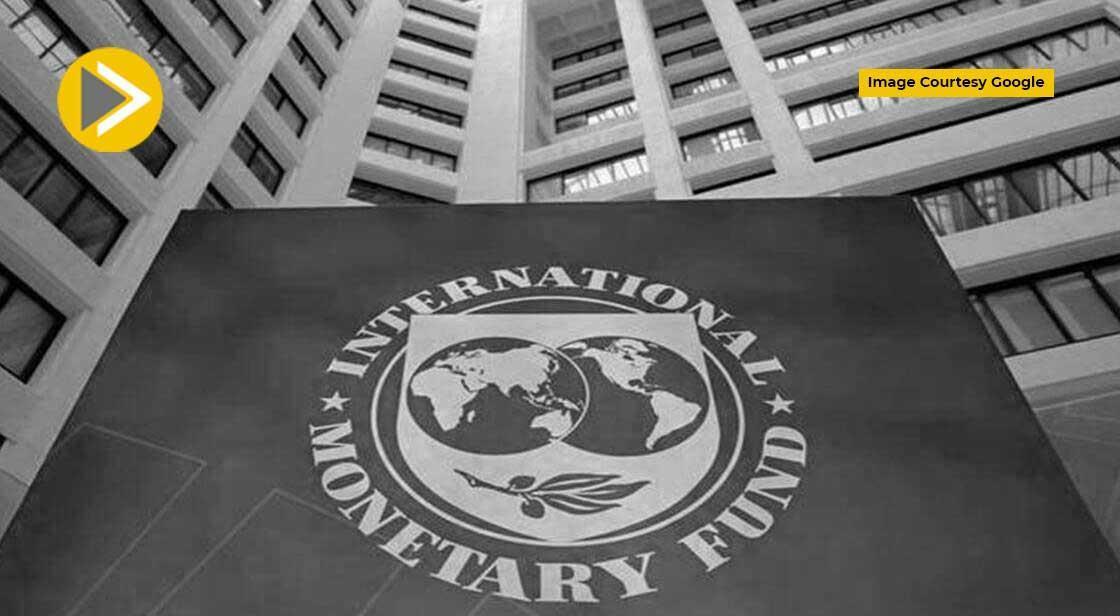India May Urge IMF to Reconsider Further Aid to Pakistan: Report

News Synopsis
A day ahead of a crucial International Monetary Fund (IMF) meeting in Washington, India is reportedly preparing to voice its reservations against any additional financial support to Pakistan, as per a PTI report.
On Thursday, India’s Foreign Secretary Vikram Misri remarked that “I'm sure that our executive director will put forward India's position,” during a press briefing with journalists. He further stressed that while the IMF board’s decision is independent, those who continue to “generously help Pakistan financially should clearly understand the risks involved.”
Pakistan’s IMF Bailouts in Focus
Foreign Secretary Misri highlighted a concerning trend, noting that Pakistan has received around 24 bailout packages from the IMF in the past, yet many of them “have failed to achieve proper results.”
His comments come against the backdrop of rising tensions between India and Pakistan, especially after India conducted military strikes on terrorist camps located in Pakistan and Pakistan-Occupied-Kashmir, just a day before the statement was made. These operations were reportedly in response to heightened threats emanating from across the border.
India's Message to the IMF and Global Community
India appears to be cautioning the international community that continued financial aid to Pakistan may not address the root issues of terrorism and poor fund management, which have plagued previous IMF assistance packages.
Key Issues At a Glance
-
IMF’s decision-making process is independent but influenced by member country views.
-
India stresses accountability and transparency in IMF aid allocations.
-
Pakistan’s track record with IMF bailouts remains a concern for India.
-
The geopolitical situation in South Asia is tense post cross-border strikes.
About International Monetary Fund (IMF)
The International Monetary Fund (IMF) is a global organization of 191 member countries working to foster global monetary cooperation, secure financial stability, facilitate international trade, promote high employment and sustainable economic growth, and reduce poverty around the world. It is a specialized agency of the United Nations, headquartered in Washington, D.C.
Key Objectives of IMF:
-
Foster global monetary cooperation: The IMF provides a permanent institution for collaboration and consultation on international monetary issues.
-
Secure financial stability: It aims to minimize exchange rate instability and promote orderly exchange arrangements among member countries.
-
Facilitate international trade: The IMF works towards the expansion and balanced growth of international trade.
-
Promote high employment and sustainable economic growth: It encourages policies that lead to high levels of employment, real income, and the development of productive resources.
-
Reduce poverty around the world: The IMF supports developing countries in achieving macroeconomic stability and reducing poverty.
Key Functions of IMF:
-
Surveillance: The IMF monitors economic and financial developments in member countries and at the global level, offering policy advice to promote stability and prevent crises.
-
Financial Assistance: The IMF provides loans and other financial support to member countries facing balance of payments problems to help them stabilize their economies and restore sustainable growth. This lending is often accompanied by policy conditions.
-
Capacity Development: The IMF offers technical assistance and training to member governments to help them strengthen their economic institutions, design and implement sound economic policies, and improve data collection and analysis.
Structure of IMF:
The IMF has a hierarchical structure:
-
Board of Governors: The highest decision-making body, consisting of one governor (typically the finance minister or central bank governor) from each member country.
-
Executive Board: Responsible for the day-to-day work of the IMF.17 It comprises 24 Executive Directors representing all member countries.
-
Managing Director: The head of the IMF staff and the chair of the Executive Board.
-
Ministerial Committees: Two main committees advise the Board of Governors: the International Monetary and Financial Committee (IMFC) and the Development Committee.
-
Staff: The IMF has a diverse international staff of economists and experts who carry out its analytical and operational work.
History of IMF:
The IMF was conceived in July 1944 at the Bretton Woods Conference in New Hampshire, USA, by 44 founding member countries seeking to build a framework for postwar international economic cooperation. It officially came into existence on December 27, 1945, and began its financial operations on March 1, 1947.
Initially focused on maintaining a system of fixed exchange rates, the IMF's role evolved after the collapse of the Bretton Woods system in the 1970s. It shifted towards managing balance of payments difficulties and preventing the spread of international financial crises, with an increasing focus on promoting sound economic policies and poverty reduction.
Funding:
The IMF's resources primarily come from quotas, which are subscriptions paid by member countries based on their relative economic size. It can also supplement its resources through borrowing arrangements.
The IMF plays a crucial role in the global financial system, acting as a lender of last resort, a provider of economic advice, and a forum for international cooperation on monetary and financial issues.









